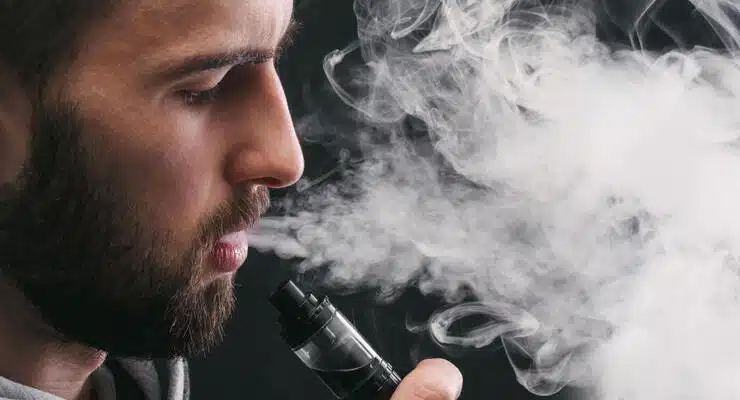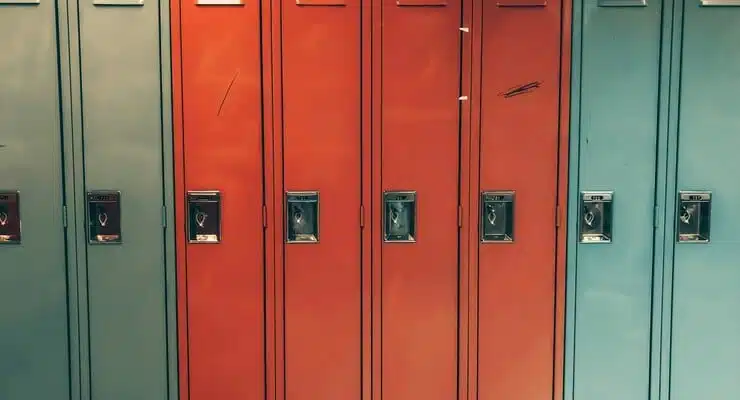As concerns about youth vaping continue to rise, schools in Virginia Beach are taking proactive steps to ensure their campuses remain safe and healthy environments. According to the Virginia Youth Survey, the prevalence of vaping among teenagers in Virginia Beach reflects a concerning trend that aligns with national averages. The data reveals a significant portion of middle and high school students report having tried vaping at least once, highlighting the urgency of addressing this issue in local schools. These statistics provide a foundational reason for the enhanced anti-vaping initiatives being rolled out across educational institutions in the area.
Here are 13 innovative strategies that local schools are implementing to combat student vaping:
1. Vape Detectors in Restrooms and Locker Rooms
Many schools have installed vape detectors in areas where students are likely to vape secretly. Vape detectors for schools alert administrators when they sense vapor, allowing for immediate intervention.
2. Comprehensive No-Vaping Policies
Updated school policies now include strict no-vaping rules, which are clearly communicated to students at the beginning of the school year. Consequences for violating these rules are also explicitly outlined, ranging from detentions to more severe disciplinary actions.
3. Peer Education Programs
Schools are empowering students to lead peer education initiatives. These programs train students to speak to their classmates about the dangers of vaping, creating a culture of peer accountability and support.
4. Parental Notification Systems
When a student is caught vaping, schools are implementing systems to ensure immediate parental notification. This allows parents and families to be actively involved in addressing and discouraging their child’s vaping habits.
5. Health Classes on Vaping Risks
Health education curricula now include detailed sessions on the risks associated with vaping, including discussions on nicotine addiction and the potential for long-term health issues.
6. Counseling and Support Services
Recognizing that some students vape as a way to manage stress, schools offer counseling and support services to help them find healthier coping mechanisms. This approach addresses the root causes of vaping rather than just the symptoms.
7. Anonymous Reporting Tools
To help students safely report peers who vape, schools have introduced anonymous reporting tools. These tools encourage students to help enforce the vaping policy without fear of reprisal.
8. Promoting Tobacco-Free Campus Initiatives
Schools participate in broader tobacco-free campus initiatives, often in partnership with local health departments. These initiatives aim to educate the entire school community about the benefits of a vape-free environment.
The Virginia Department of Health’s Tobacco Control Program is actively working to mitigate the health impacts associated with tobacco and vaping product use among youths. The program’s objectives include preventing tobacco use among young people, promoting cessation among both adults and youths, and eliminating exposure to secondhand smoke. Virginia Beach schools collaborate with this state program to integrate these health objectives into school policies and student education, ensuring that the anti-vaping message is consistent and supported by evidence-based strategies.
9. Regular Locker Checks
To deter students from bringing vaping devices onto school property, administrators conduct random locker checks. While maintaining respect for privacy, these checks are designed to be a deterrent.
10. Vaping Cessation Programs
For students struggling with vaping addiction, some schools offer cessation programs. These programs provide resources and support to help students quit vaping.
11. Integration with Physical Education
Physical education classes incorporate lessons on how vaping can impair athletic performance, emphasizing the physical benefits of staying vape-free.
12. Partnerships with Local Police
To enforce anti-vaping laws more effectively, schools work closely with local law enforcement. This collaboration helps to keep illegal sale and distribution of vaping products to minors in check.
13. Educational Workshops for Parents
Virginia Beach schools have rolled out a series of educational and preventive programs designed to inform students about the dangers of vaping. These programs include curriculum integrations in health classes, where students learn about the long-term effects of nicotine addiction and the specific risks associated with vaping. Schools also host workshops for parents to equip them with the knowledge and tools they need to discuss vaping with their children effectively. These initiatives are part of a comprehensive approach to create a well-informed school community that can recognize and resist the influences of vaping culture.
Legislative Actions to Curb Youth Vaping
In response to the rising trend in youth vaping, Virginia has implemented stringent legislative measures, including raising the legal age to purchase tobacco and vaping products to 21. This legislative action aims to make it harder for teens to access vaping products, thereby reducing the incidence of vaping among students. Virginia Beach schools support these laws with specific policies that enforce penalties for possession and use of vaping devices on school property, further aligning local educational policy with state law to protect students.
These measures by Virginia Beach schools demonstrate a strong commitment to student wellness and safety, aiming not only to reduce vaping on campus but also to educate students about the significant risks associated with it. Through education, enforcement, and support, these schools are leading the charge in protecting their students’ health.


















